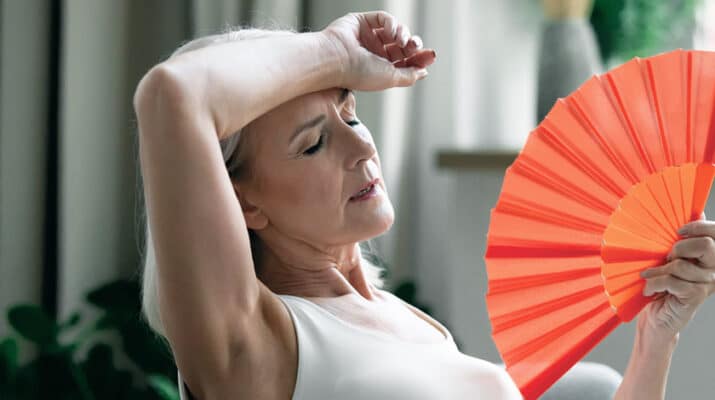By Megan Plete Postol
Although menopause is natural, this does not mean it’s easy.
Menopause is the gradual (inevitable) process of period cycles ending in a woman’s body. This happens when the ovaries (female reproductive glands responsible for storing eggs and releasing them into the fallopian tubes) stop producing high levels of the hormones estrogen and progesterone.
This transition brings an onslaught of changes to a woman’s life and body.
“Every woman goes through menopause,” Amber O’Brien of the Mango Clinic said. “If a woman is moving towards her menopause, there are certain things that she must be prepared for. The changes are different for different women. If one woman is experiencing a large range of menopause symptoms, while another may experience less.”
The years leading up to menopause are the phase called peri-menopause. This is when women will experience the common indicators such as include period irregularity, hot flashes (the sudden onset of feeling very feeling warm or hot, sleep disturbances, trouble concentrating, issues with intercourse, mood swings, bloating, vaginal dryness, and more.
Menopause has been achieved once a woman has completed her last period. The usual marker is 12 months past her last cycle. Post-menopause is the time period in a woman’s life after menopause.
This process can, and does, last years. The number of years for each individual woman varies, but symptoms commonly start when a woman is in her forties and can continue into her fifties. The average age for a woman to enter menopause is 51, according to Healthline.
Going through menopause puts women at a higher risk of developing certain health conditions, such as sleep apnea, weight gain, heart disease, and osteoporosis.
In a study published by The North American Menopause Society (NAMS), the research revealed that women who experience frequent intense hot flashes are more likely to develop sleep apnea, a potentially dangerous condition characterized by pauses in breathing during sleep. These breathing interruptions can last for a few seconds or even minutes. Sleep apnea is linked to a whole host of other health conditions, including irregular heartbeat, stroke, high blood pressure, and dementia.
The menopause process is totally personalized, similar to pregnancy – no woman experiences it the same way.
Some women have minimal symptoms and no treatment is needed. Others suffer from severe symptoms and choose to visit a menopause clinic and pursue relief by having menopause treatment. This can be found in the form of medications, lifestyle changes, natural remedies, or a combination.
Medication options include hormone therapy, estrogen cream, and low-dose selective serotonin reuptake inhibitors (SSRIs).
Lifestyle changes can be meditation, prioritizing rest time, dressing in layers (for hot flashes), cognitive-behavioral therapy (CBT), and deep breathing exercises.
Some popular natural remedies are acupuncture, yoga, and supplements.
The best thing to do if a woman is having intense symptoms is to seek advice from her healthcare provider. An honest and in-depth discussion with a doctor can help women to formulate a plan to handle this complicated life transition.

